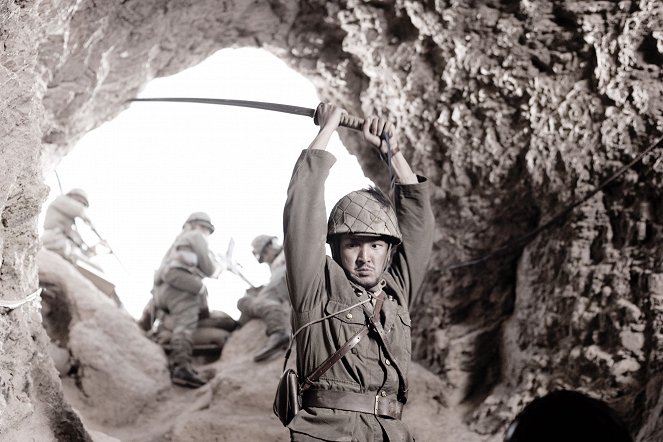Directed by:
Clint EastwoodScreenplay:
Iris YamashitaCinematography:
Tom SternCast:
Ken Watanabe, Kazunari Ninomiya, Tsuyoshi Ihara, Ryō Kase, Shidō Nakamura, Takumi Bando, Yuki Matsuzaki, Takashi Yamaguchi, Nae Tazawa, Lucas Elliot Eberl (more)VOD (1)
Plots(1)
In an effort to explore an event that continues to resonate with both cultures, Clint Eastwood was haunted by the sense that making only one film, Flags of Our Fathers, would be telling only half the story. With this unprecedented dual film project, shot back-to-back to be released in sequence, Eastwood seeks to reveal the battle of Iwo Jima - and, by implication, the war in the Pacific - as a clash not only of arms but of cultures. Sixty-one years ago, US and Japanese armies met on Iwo Jima. Decades later, several hundred letters are unearthed from that stark island's soil. The letters give faces and voices to the men who fought there, as well as the extraordinary general who led them. The Japanese soldiers are sent to Iwo Jima knowing that in all probability they will not come back. Among them are Saigo (Kazunari Ninomiya), a baker who wants only to live to see the face of his newborn daughter; Baron Nishi (Tsuyoshi Ihara), an Olympic equestrian champion known around the world for his skill and his honor; Shimizu (Ryo Kase), a young former military policeman whose idealism has not yet been tested by war; and Lieutenant Ito (Shidou Nakamura), a strict military man who would rather accept suicide than surrender. (Warner Bros. AU)
(more)Videos (2)
Reviews (9)
A much more sincere and stronger war film than the tearful and extremely pathetic Flags of Our Fathers. Clint Eastwood really stepped up his game in the second film, which, in contrast, shows the conflict from the other side and tells an excellent story full of Japanese traditions, customs, and tactics. How accurately it reflects reality can only be judged by eyewitnesses and war experts, but I dare say that the film was presented to the audience in a very bearable way. Thank God it doesn't just show the Japanese as suicidal lunatics and heartless killing machines, but also portrays them nicely from the other side right from the beginning. From young boys separated from their families to high-ranking officers with connections to the West, who are willing to proudly sacrifice their lives for their country. Watanabe is excellent, the action is decent and the non-combat scenes are very impressive. This solid film is worth watching if inly for the fact that we may have the opportunity to see a comprehensive view of an event in the war from this different and culturally distinct perspective, despite some minor flaws and a slightly excessive runtime (or rather, some unnecessary scenes).
()
Iwo Jima Island - deserted, no water, full of bothersome insects and afflicted with unbearable humidity. But still, it is a strategic key to the Pacific... If I hadn’t known anything at all about the Letters I wouldn’t have hesitated an instant in swearing that this was filmed by Kurosawa. Everything from picture composition, introduction and departure from plot action through supporting characters through to the overall atmosphere - this all bears his signature. Clint Eastwood has made an excellent picture about the senselessness of war and respect for the enemy. Despite the fact that the battle scenes aren’t at all central to the movie, we get several here and they are unarguably outstanding. Don’t expect a second Saving Private Ryan, though. This is a considerably more intimate experience. Ken Watanabe plays is Mifune-scale role exemplarily. If the first half of Letters from Iwo Jima had been shorter, there would have been nothing to fault.
()
I've read the book that Clint and the writers were inspired by, and I have to say that I imagined everything the way it was eventually presented to me in the film. Letters from Iwo Jima is undoubtedly one of the best "modern" war films I have seen.__P.S. Be sure to get the soundtrack - but be warned, it's terribly addictive and you won't be able to get it out of your head!
()
My next encounter with war Eastwood, where the director once again shows that he is much closer to a human story than capturing war. He is not trying to make a great war film, but a great drama. I simply cannot forget some scenes from the movie. The scene with the dog, touching and harsh at the same time, Japanese fanaticism, which ends in mass suicide with a lot of grenades, a bucket of excrement, which means the difference between life and death. Even in war, there is room for happiness. An excellent film that surpassed its doppelgänger "Flags of Our Fathers". I admire Eastwood for not shooting in English, but in the right language, just like Mel Gibson did in "Apocalypto" or "The Passion of the Christ". That's how it should be. And not like the case of the film "The Girl with the Dragon Tattoo", which is great in the American version, but why the hell is it set in Sweden when the characters speak English anyway? More: http://www.filmovy-denik.cz/2012/04/diar-milovnika-filmu-c-0003-eastwood.html
()
Letters from Iwo Jima is a nice film. The Japanese view of the incident is darker, more accomplished and more meditative than the American view depicted in Flags of Our Fathers. And, mainly, it works internally. The spectacular action scenes are all the more impressive due to the fact that there is a minimum of them and we see them only from a distance, thanks to which the film maintains a powerfully intimate nature. The sentiment and simplicity are tastefully balanced with a beautiful visual aspect and the minimalism of Clint Eastwood’s music, whose dominant feature is a fragile piano motif. Another pleasing aspect is the filmmakers’ affection for the Japanese and, in contrast to that, their contempt for the American soldiers in some scenes. It’s a shame that Flags is such an unworthy sibling to Letters and drags this ambitious diptych of films down to the level of a quickly thrown-together Oscar frontrunner. If more work had been put into Flags, these two films could have gone down in history together.
()



Ads